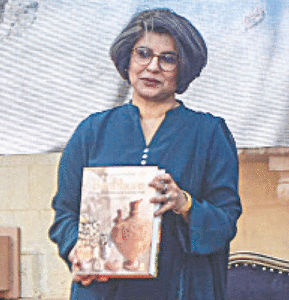KARACHI: The Sindh Human Rights Commission (SHRC) has partnered with Legal Aid Society (LAS) for consultation with relevant administrative departments to address the issue of child marriage and to discuss a comprehensive plan for its eradication.
The collaborative consultation, led by the caretaker minister for law, parliamentary affairs, and religious affairs in Sindh, brought together key departments and stakeholders to craft strategies for eliminating child marriage.
Statistics show that nearly 31 per cent of marriages in Pakistan involve at least one spouse below 18 years of age, with rural Sindh having higher rates than urban areas, especially among girls under 16. Child marriage is a complex issue, involving legal dimensions and deeply ingrained socio-cultural norms. Recent attention surged after the Dua Zehra case, where an underage girl from Karachi married in Punjab, sparking widespread discussion.
Its impact spans human rights violations, health risks, reproductive health issues, maternal and infant mortality, hindrances in education and employment, and economic burdens. In 2022, an actionable plan was devised based on the Sindh Child Marriage Restraint Act 2013. This comprehensive strategy targets gaps via primary prevention, secondary responses, and tertiary interventions across multiple departments. It specifies governmental roles for effective law implementation.
Additionally, the SHRC and LAS crafted department-specific roadmaps for law, parliamentary affairs, criminal prosecution, education, health and social welfare. These roadmaps empower law enforcement agencies in Sindh to combat child marriages, ensuring a safer environment for children’s well-being.
Chairperson of the Sindh Human Rights Commission Iqbal Ahmed Detho emphasised the commission’s mandate. He pointed out that child marriage is more than just an issue related to poverty. It’s a cultural and behavioural issue. He called for better district-level data on registrars. He also stressed institutional capacity building and highlighted the importance of aligning with local government initiatives. To address the Act deficiencies, he proposed revisiting it, focusing on consent and registration gaps.
Maliha Zia from the LAS outlined their act implementation framework, highlighting challenges such as cases settling outside the court. She emphasised measuring child marriage cases comprehensively and LAS’s role in ensuring human security and supporting government initiatives. Addressing high mortality rates, she stressed on education, especially for out-of-school children, and engaging men to redefine masculinity against child marriage. She recommended establishing rules for Nikkahkhwans, launching media campaigns, and conducting a needs assessment survey with the support Child Protection Authority.
Renuka Swami from the United Nations Population Fund (UNFPA) praised the departments’ efforts and pledged UNFPA’s commitment to bolstering policies, building institutions, and tackling gender-based violence. She stressed the importance of technical engagement across multiple sectors.
As feedback and recommendations on the Action Plan, participants stressed awareness, advocating redesigned rules for child marriages and linking campaigns to economic empowerment.
Additional Secretary of Law and Parliamentary Affairs Abdul Samad Samoo suggested integrating the action plan with the Education Department’s Reform Support unit. To address birth registration loopholes, waiving fees and potentially tying it to The Benazir Income Support Programme (BISP) were proposed.
Published in Dawn, December 23rd, 2023













































Dear visitor, the comments section is undergoing an overhaul and will return soon.